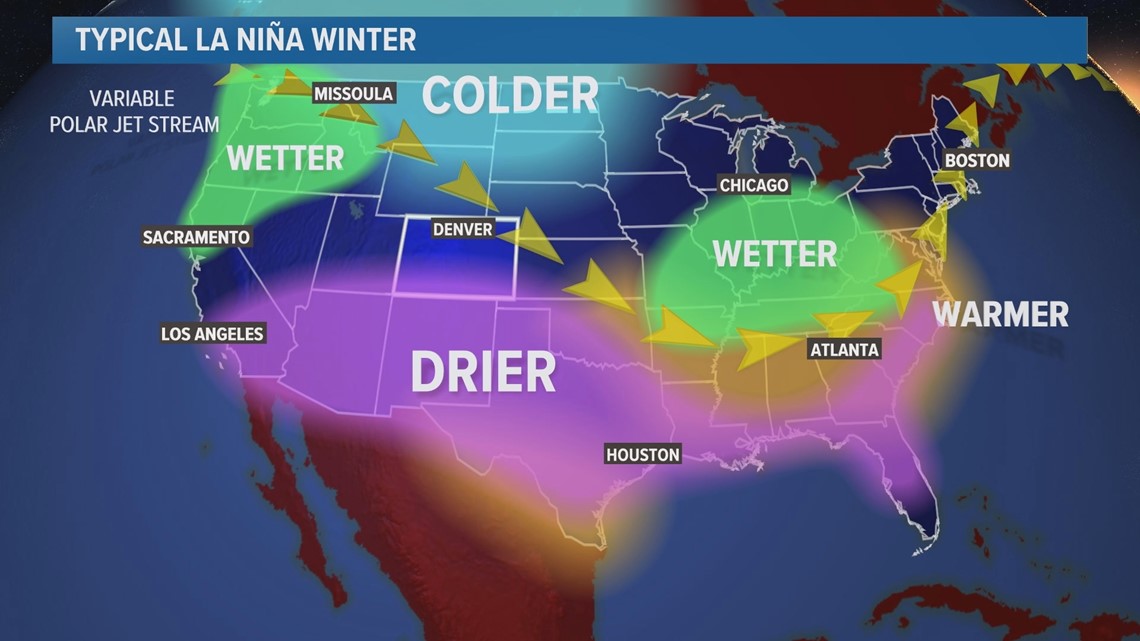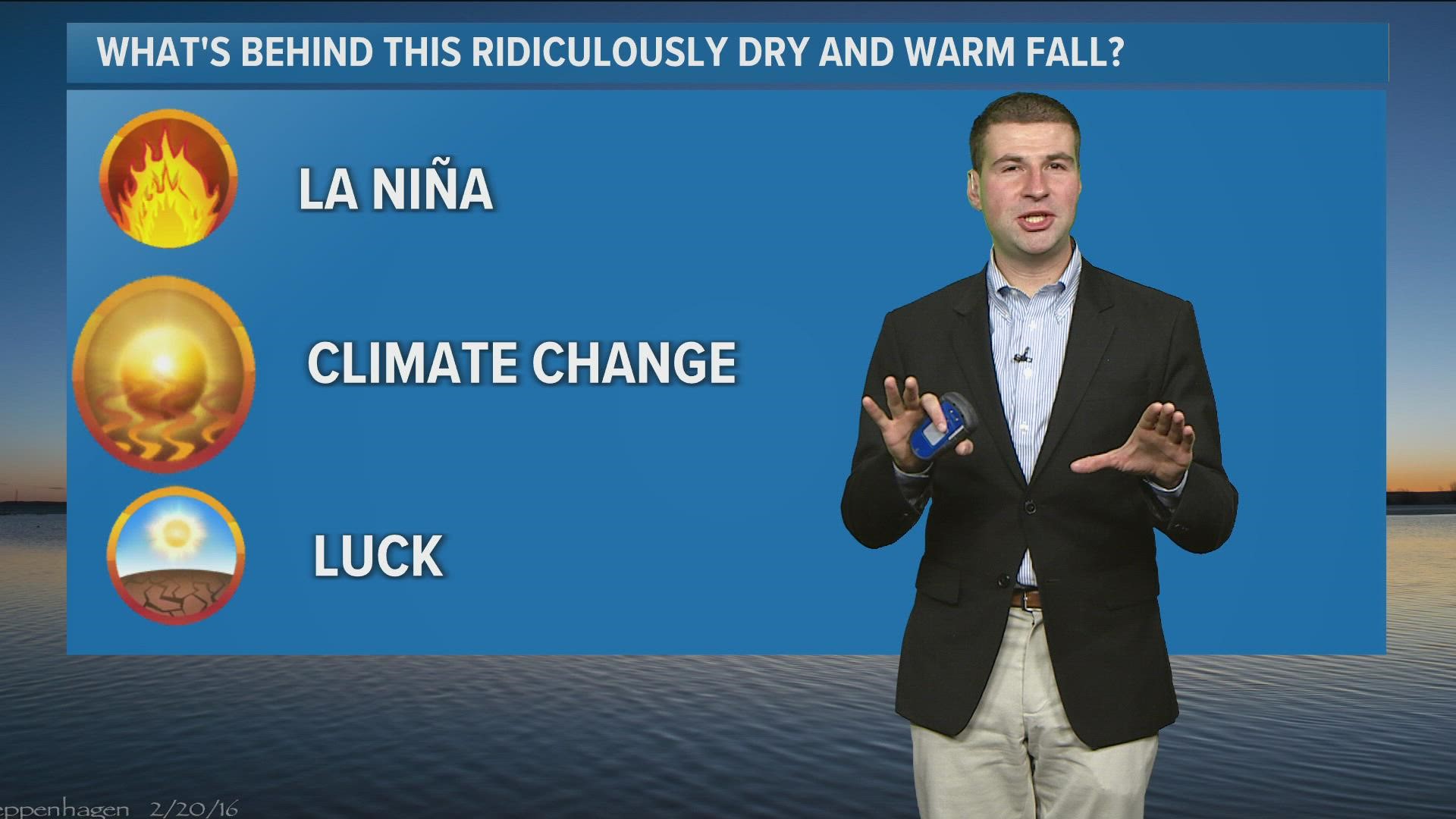DENVER — It feels like the summer that just won't end.
Temperatures soared - again - on Monday into the low 70s in Denver, with a high of 72° at Denver International Airport. Pueblo set a record high of 75° on Monday, and Colorado Springs came within a degree of setting a daily record as well.
And this follows an exceptionally warm and dry October. And September. And August. And July. And June.
On top of that, it still hasn't snowed in Denver, and the city has officially received less than 2 inches of total precipitation since June 1, the driest nearly six-month stretch on record.
So what's behind all of this continued warmth and dry weather? There are three key reasons, along with a slew of smaller things behind this unusual dry and warm stretch.
La Niña
Sea-surface temperatures across the Central Pacific create a domino effect of global weather. When those temperatures run colder than average, it leads to what's known as La Niña, an overall weather pattern that favors drier and warmer than average falls and winters in Colorado, and specifically across the southern half of the state.


This fall, at least so far, has played out in classic La Niña fashion.
The Pacific Northwest has seen relentless rain and snow, causing flooding in Washington State and Oregon.
Meanwhile, the Southwest has generally been locked in a dry and mild pattern, undoubtedly contributing to Colorado's mild and dry fall to date.
Climate change
Yes, climate change is at work here. Denver is in the middle of its warmest June-November on record, and temperatures have consistently scorched going back to the early summer.
A warming climate is no doubt boosting daily high temperatures by a few degrees, and in turn adding to our consistent summer and fall warmth.
Luck
In order for it to stay as warm and as dry as it's been, particularly across eastern Colorado, there's another final factor: luck.
This mostly pertains to the snowless streak in Denver, where we've had a few close brushes with measurable snowfall, but none of them have come through yet.
A progressive weather pattern is part of that, meaning primarily westerly winds produce warm, downsloping winds at the surface in Denver and across eastern Colorado in particular.
Overall, storms just missing Colorado and the Front Range, along with temperatures perhaps a tick too warm for snow, are all playing a role here. And good old dumb luck is behind some of this as well.
The end result? A never-ending fall, or so it seems.
SUGGESTED VIDEOS: Science & Weather
MORE WAYS TO GET 9NEWS
Subscribe to our daily 9NEWSLETTER
Download the 9NEWS APP
iTunes: http://on9news.tv/itunes
Google Play: http://on9news.tv/1lWnC5n
HOW TO ADD THE 9NEWS APP TO YOUR STREAMING DEVICE
ROKU: add the channel from the ROKU store or by searching for KUSA.
For both Apple TV and Fire TV, search for "9news" to find the free app to add to your account. Another option for Fire TV is to have the app delivered directly to your Fire TV through Amazon.

